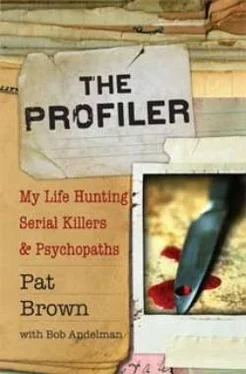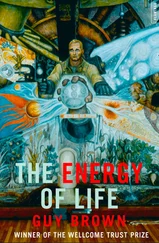Debbie said she didn’t see Carl that night at the house. Carl couldn’t remember if she was there before or after him. Her sisters Laurie and Denise, however, said that they were there together, and that it was quite late. If they were there together, it would have had to be after eleven. Carl said he was there from seven to seven thirty p.m. and was going to come back later. Did he return after eleven p.m. with or after Debbie? He said he was there at around seven p.m. and told Doris that he would return later but didn’t. But what if he did return? Carl’s alibi was that he was a mile away at the home of his girlfriend, Marilyn, by eight p.m. This conflicted with others’ recollections of him being at the Hoover house late that night.
There seemed to have been a family confrontation that night. But who was involved is unclear. Some reported that Doris had fought with her husband over the phone. Others told of an argument between Doris and Debbie over Debbie leaving her husband (and possibly for Carl). Carl seemed to be involved in some way or another.
Carl brought up the issue of taking his watch over to Doris to have it fixed. This was a watch she gave him, supposedly for graduation. He said, “It never showed up again.” It was highly unlikely that a thief would have chosen to steal Carl’s broken watch. It was more likely he was concerned that the watch was in her purse, evidence perhaps that he had returned that night.
Finally, Carl’s parents lived nearby and this would be the direction the perpetrator would have been heading after leaving the Hoovers ’ house, shown by the crayon marks on the sidewalk the perpetrator left after he stepped on them at the crime scene. There was also a convenience store with a pay phone at the end of the Hoovers ’ street along that same route, the phone the killer used to call the fire station.
* * * *
LAURIE HOOVER SAID she never completely shook off the nagging fear that her father could have had something to do with her mother’s murder, that maybe he had hired a hit man. It was a feeling that stuck with her over the years.
The police investigation stalled and the survivors waited for years and years for some hope that the case would be reevaluated and a suspect would finally be identified and brought in. A recording of the emergency call disappeared shortly after the murder. And although they hypnotized and polygraphed Laurie, they never interviewed Doris’s eldest daughter, Cathy, who lived across the street, or Debbie, who had been at the house that evening, or Doris ’s two best friends. Nor did they talk to Mickey Hoover’s coworkers. They did question Carl.
“It was screwed up,” Mickey told me in an interview. “One detective had a daughter who was very ill. He didn’t have the time to put into it. Finally, they changed lead detectives. Naturally, I would like to know what happened.
“The police told one of my daughters it was a hit. I didn’t hear it from the police. They never questioned me on the hit theory. They questioned my buddies; they never asked me to take a polygraph.”
By the time of my investigation, the police no longer had any evidence from the case. They gave the Hoover children a number of reasons for this: it “got lost in the chain of command,” “became contaminated,” or was “lost in a warehouse fire.” It didn’t help me that the house where the murder occurred subsequently burned down.
But Debbie-and Carl-appeared to be holding back.
Debbie seemed defensive when we talked about Carl. And, according to Denise, Debbie had been against my being brought in to profile the crime. Was her grief too great and did she not want to dredge up the past, or was there another reason?
Debbie made statements that she and Carl were not romantically involved, yet others believe differently. Carl and Debbie also said that Carl was not romantically involved with Doris, but that also was questionable. What exactly the emotional involvement was among the three of them remains to be discovered.
Mickey, however, fully cooperated in my interview and I found nothing concerning in his answers. He did have questions about Carl, it’s worth noting.
“My wife had befriended Carl as a teenager,” he said. “Carl, it seemed, had a troubled relationship with his parents, and I don’t know whether he was living with them at the time. He never came to the funeral or the funeral home. He said he was at his girlfriend’s and the police never went further. My daughter asked me if [Doris] was having an affair. I hate to think that. She had never had any affairs that I had known of.”
(Incidentally, Carl told me he did attend the funeral and subsequently went with Debbie to put flowers at Doris ’s grave.)
Mickey was willing to be polygraphed, further decreasing any suspicion about his involvement. I still believed it advisable to request the polygraph anyway. This would serve two purposes. One, since he was willing, why not take the opportunity to leave no stone unturned and be sure nothing was overlooked? Should I be dead wrong in my profile, this was a reasonable way to be sure the killer of Doris Hoover didn’t escape attention. Should Mickey have difficulty with the polygraph, then a door of investigation opens. If he passed it without problem and a police interview with him aroused no new suspicions, then Mickey could be dropped low on the suspect list, further narrowing the focus of the investigation to other suspects.
Carl gave me mixed messages about his relationship with Doris and the family. On one hand, he tried to sound nonchalant, like he was just a casual family friend without strong connections to the victim.
Then, during his conversations with me, he made statements suggesting a strong intimacy with the family and Doris in particular. He was eager to be helpful. He didn’t even seem upset that he had been considered a suspect. He said he hoped the police solved this crime and that I should call him anytime, yet he purported to have little information to offer of other possible suspects.
It was my feeling that the crime may have been one of passion, at least what most people call a crime of passion. Crimes of passion are really actions that an individual would not object to carrying out should he be provoked. What causes some folks to feel guilty about these crimes is when the crime goes further than expected. If Carl did it, he might not have planned to kill her; he might only have wanted to scare her, maybe appear desperate to her.
He should have been asked if he ever actually engaged in any sexual conduct with Doris. I believed that they may have had a physical relationship and that Carl was uncomfortable with it. I didn’t buy his assertions that the relationship was just a friendship. He said that Doris couldn’t have sex-how would he know and why should he know? He was confused as to why the police got pubic hair from him when “she couldn’t have sex.” Perhaps he tried with her-consensually or not-and she found it too painful (following a hysterectomy). Perhaps she told him that as a way to fend him off. Either way, it seemed to me he knew too much about this for a daughter’s male friend to know.
He also said Doris knew things about him he had never told anyone. Was he suggesting she was psychic? Regardless of the confused meaning of this, it infers yet more intimacy.
When I completed my profile, in addition to thinking that the police should reexamine Carl, I also concluded that the police should have talked with Debbie. According to her story about when she was at the house and who was there with her, her stories were inconsistent with those of her sisters.
After I handed in my profile to the police, I suggested that they use the Hoovers ’ appearance on the daytime TV show to see if Carl would talk more about the night of the murder. I suggested they give Carl a ring, tell him that tips had been coming in after the show aired (I had gotten some, but unfortunately they were all from psychics), and they now needed to talk with him.
Читать дальше












